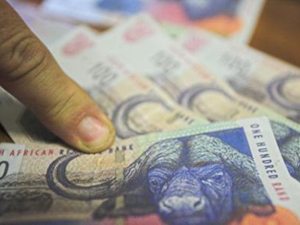
[miningmx.com] – REMEMBER Gwede Mantashe lambasting Anglo American for having been “stolen our money’?
This was the comment in an SAfm radio interview earlier this year in which Mantashe said: “They are a British company now’, as explanation as to why its subsidiary, Anglo American Platinum (Amplats), could propose retrenching 14,000 workers without any apparent show of sympathy for the national interest.
As it turned out, Amplats is to retrench 3,300 employees pending attempted union interdicts in the Labour Court, but there’s also grounds for reviewing the comment that Anglo is “a British company’.
Since the end of 2009, a decade after Anglo “migrated’ to the UK in a listing aimed at lowering its cost of capital, South African shareholders in Anglo American have been steadily rising.
At the current rate of growth in the South African shareholder base, Anglo will soon stand at more than 50% locally owned from about 35% at its low in mid-2009. It’s a shift which could be construed as something of a home-coming.
And it’s not the only company where South African shareholders have been piling in.
The UK-headquartered platinum producer, Lonmin, is now nearly 50% owned by South African shareholders from less than 5% of the total shareholder base in 2009.
In the case of Aquarius Platinum, one of the first to adopt the dual-listing share structure on offer from the JSE, it has seen local investors scoop up 30% of the share register from the end of 2011.
The shift in shareholdings comes as international investors quit South Africa amid industrial and social strife, poor mining economics, and to a lesser or greater extent, company depending, under-performance. South Africans, meanwhile, understand (or are less risk averse) to what’s been going on at the local operations.
Capitalising on geo-political risk, may also make for some good investing, especially if you believe the mining markets are not fundamentally harmed, just correcting.
From February 2011, the time when South African shareholders in Lonmin started to dramatically increase, the share lost over two-thirds of its value from R102/share to R31/share. It has since recovered to R53.80/share so perhaps some local investors bought as Lonmin bottomed out.
The same might be said for Aquarius Platinum which lost R18/share from December 2011 to June 2011, roughly over the same time the South African shareholder base started to rise. It is now trading at R8.18/share. Perhaps there are benefits from local domain knowledge.
The willingness of South Africans to invest in their own stocks was grasped as an interesting marketing opportunity by GlencoreXstrata which is expected to take a secondary listing on the JSE in the last quarter of this year.
One wonders if other companies with operations within South Africa, but not listed here were seek to mine the captive South African audience which doesn’t have the geopolitical collywobbles of its international brethen? IvanPlats, a Toronto-listed platinum development firm is one.
Adrian Saville of Cannon Asset Management says the observation is interesting, but wonder if foreign shareholders of miners operating in South Africa are just “capturing collective foreign sentiment.’
One of the company’s not considering a homecoming, as it were, is Petra Diamonds. Almost all of the diamond firm’s operations are in South Africa having bought them from De Beers, but the company has largely stuck to a UK listing.
Says Johan Dippenaar, CEO of Petra Diamonds: “We had a dual listing in Australia, but it was reallly hard work, especially with the time shifts. We wouldn’t have that problem in South Africa, but we have a very strong shareholder base in the UK, quality institutions.
“I’d never want to say never, but it’s [a South African listing] not something we’re considering at the moment,’ he says.
Meanwhile, there have been some companies who have chosen to quit foreign climes altogether, such as Petmin which is bringing the curtain down on its London listing while Sappi its delisting its ADRs from the New York Stock Exchange giving low trading volumes there.










